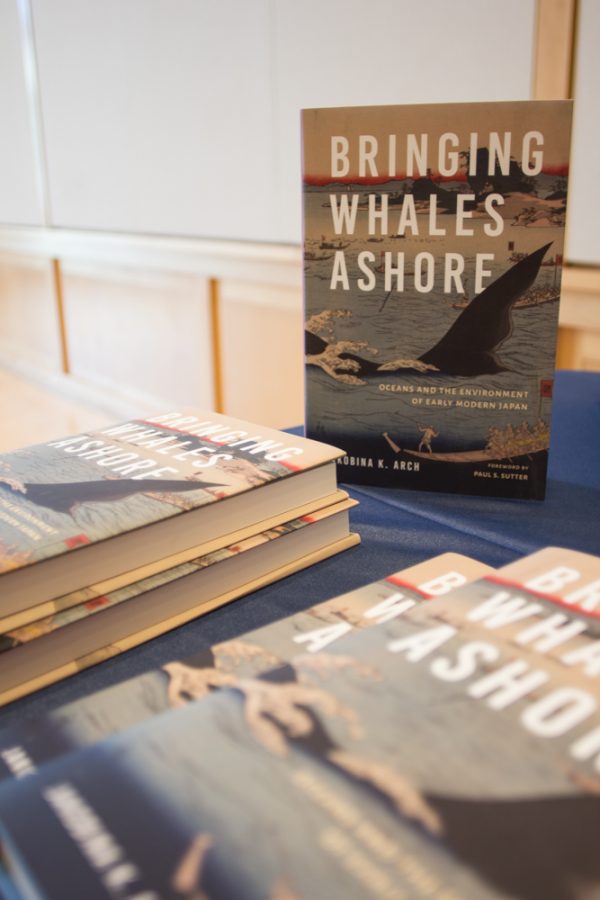 Paul Saltzman’s first documentary feature, Prom Night in Mississippi, which was screened in competition at last year’s Sundance Film Festival, tackles the issue of racism, one that should seem foreign to the vast majority of Whitman students. Yet, while the issue of racism may seem foreign, it is but a paradigm under which different bigoted ideologies may fit. Consciousness of this latter notion, to which a student eloquently drew attention during the question and answer session with Mr. Saltzman, imbues the film with a presentness only very good documentaries can maintain long after their release. The student brought up the issue of political correctness, albeit in a politically correct manner, and the extent to which students at this college are judged by their ideologies. The argument the student made was that the Whitman community should effectively “understand before wanting to be understood.” That is, one should comprehend the logic behind the ideology with which he/she disagrees before arguing with it. Going into an argument with prejudice is as disingenuous as it is self-deceiving.
Paul Saltzman’s first documentary feature, Prom Night in Mississippi, which was screened in competition at last year’s Sundance Film Festival, tackles the issue of racism, one that should seem foreign to the vast majority of Whitman students. Yet, while the issue of racism may seem foreign, it is but a paradigm under which different bigoted ideologies may fit. Consciousness of this latter notion, to which a student eloquently drew attention during the question and answer session with Mr. Saltzman, imbues the film with a presentness only very good documentaries can maintain long after their release. The student brought up the issue of political correctness, albeit in a politically correct manner, and the extent to which students at this college are judged by their ideologies. The argument the student made was that the Whitman community should effectively “understand before wanting to be understood.” That is, one should comprehend the logic behind the ideology with which he/she disagrees before arguing with it. Going into an argument with prejudice is as disingenuous as it is self-deceiving.
The same is true for racism. Saltzman’s film concerns the still segregated senior prom that takes place every year at Charleston High School in northern Mississippi. Each spring, a white and a black prom take place for a graduating class of roughly 80 students, of whom approximately 70 percent are black and 30 percent are white. Schools in Mississippi have been integrated since 1970, sixteen years after the civil rights act, and, according to Mr. Saltzman, it came as a surprise to people in the next town over that the high school still held segregated proms: “They’re still doin’ that over there?” he remembers a person asking. In 1997, Morgan Freeman, who spent the first six years of his life in Charleston and became a resident in 1991, approached the school and students with a proposition: He offered to pay for the school prom under the condition that it be integrated. The school declined Mr. Freeman’s offer and a decade later he decided to make the offer again.
Fortunately, Mr. Freeman is not the centerpiece to Mr. Saltzman’s documentary. His words of wisdom provide a poignant backdrop to the discourses of the black and white students who have grown up with and around the racial animosity that plagues their community. Collectively, they do not understand why they still have a segregated prom and they remain powerless to change it. The school district and their parents are the only players in the community with any voice and have maintained what many purport as a “tradition” as an excuse not to confront their increasing separation from a racially integrated present.
There are several unique characters in this documentary that bring it to life. One is a gorgeous blond who has grown up in the worst of conditions. With one of her parents dead and the other in jail, she’s grown up with and has been subsequently disowned by a stepfather who said he’d beat her if he saw her with a black boy. She works a full time job that supports her and her sister and is best friends with black boy who, on countless occasions, has put the food on the table.
Then there’s the only openly interracial couple at the high school. Their candidness and beatitude is almost incomprehensible given the animosity they’ve felt from their parents and surrounding community. As one student mentions, racism knows no color, it’s all hatred.
Finally, there’s the father of the white girl of the interracial couple whose honesty is palpable when at once he describes the extent to which he cares and wants to look out for his daughter, but makes it known that he “doesn’t agree with what she’s doing.” He claims not to be racist, yet obviously holds racial prejudices against his daughter’s black boyfriend. He won’t disown his daughter for her beliefs, like many of the other parents in the community have, but prays for his daughter and her boyfriend to grow apart in the coming years. Wrought with contradiction, this girl’s father is easy to dismiss as another white, racist redneck. But, what truly drives the film, is the question of whether those of us watching it have the insight to genuinely ask ourselves if we’re so different from that father who loves his daughter so much.
Even in Whitman’s postmodern, liberal milieu, dare I say that we’re not that different from that father.
The film, Prom Night in Mississippi, is available for check-out at the Penrose Library.









Alyssa • Apr 5, 2010 at 12:21 pm
This is the first time I’ve seen someone highlighting the film’s interviews with the father of the girl in the interracial couple, thank you! Despite the prejudice he may be carrying around, I think he deserves a lot of credit for being open and honest about his opinions that he knew he could be judged for. The truly racist parents were cowards, refusing to speak to the cameras or the filmmakers on any level. I believe the man when he says he has a true concern for his daughter. In a community with that much racism, what parent wouldn’t be afraid for their child’s safety in an interracial couple? I think it’s difficult to gauge if he’s truly racist or not. It might be a matter of self-preservation: looking out for his daughter and possibly his job and his place in the community. I’m not saying that’s right, but being honest about it is a step in the right direction.